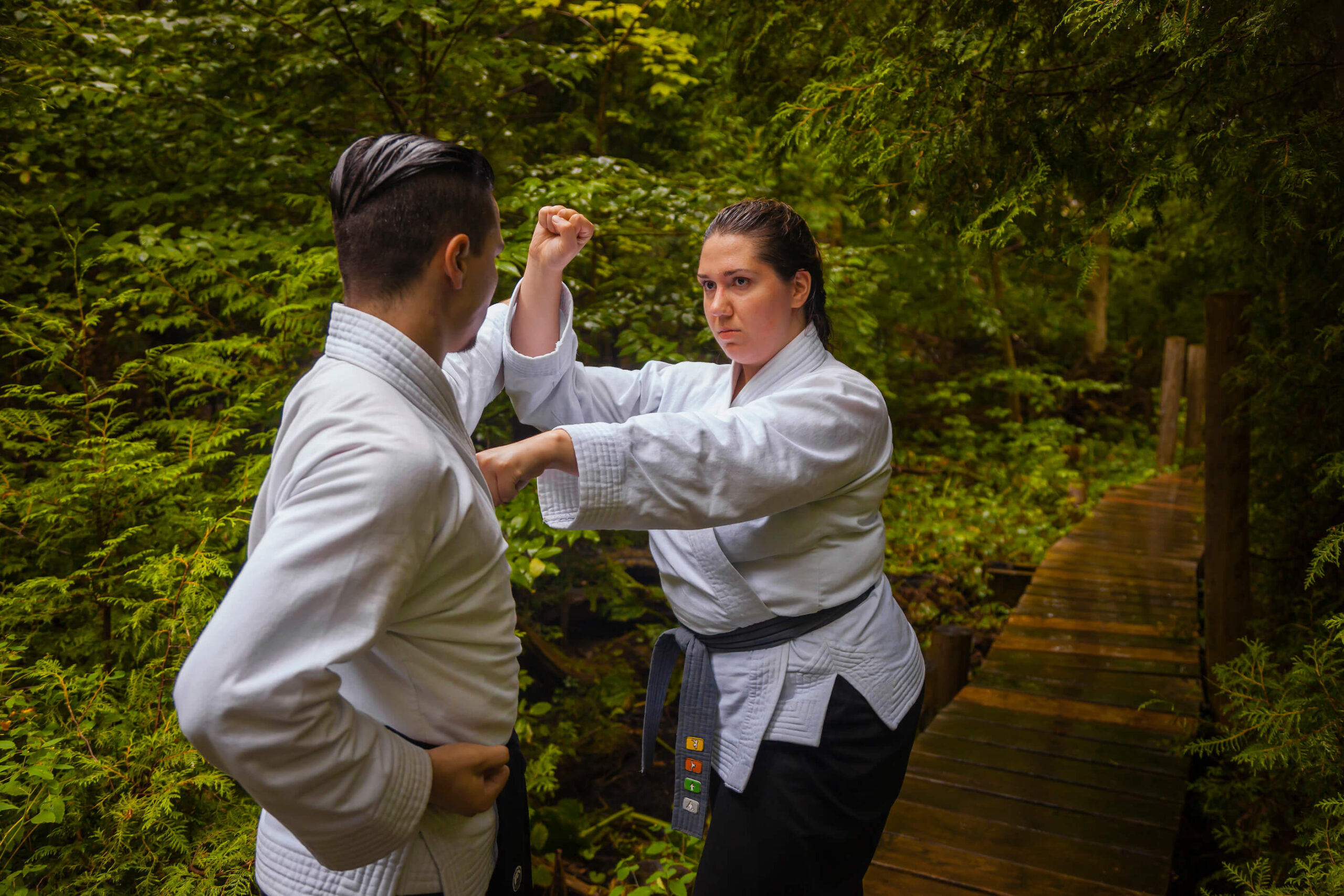Martial arts have a long and rich history, with different types of martial arts originating in South and East Asia. For many of us, our first exposure to martial arts might have been in some iconic movie fight scenes or classics, like The Karate Kid.
Martial arts teaches you the practical skills to feel safe and empowered and has a ton of other benefits for your physical and mental health.
Here are some common questions about getting started with martial arts:
1. Are martial arts useful?
Yes, we like to think that martial arts are useful. In the practical sense, we believe that it’s important for everyone to know some basic self-defense skills. Whether or not, you actually need to put these into action, having some basic training will give you a bit of peace of mind and confidence.
Aside from the practical skills that you’ll gain, martial arts classes have a reputation for fostering a stronger sense of accomplishment, discipline, and focus, which translate into your personal, professional, and academic life. Plus, the exercise helps you stay in shape and the movement improves your mood.
2. Will martial arts build muscle?
Like any exercise, you will build some muscle tone and begin to feel stronger with more practice. That said, the goal of our classes is not to build muscle. It’s more about mastering martial art techniques.
3. Can martial art help with depression, anger, or anxiety?
Martial art is not a treatment for depression, anger, or anxiety, and we recommend seeking appropriate support if you need it.
However, there’s research that suggests that movement and exercise help with depression and mood. Learning a skill, like martial arts, helps you to channel and control your emotions and gives you a sense of accomplishment and mastery, which are suggested to help combat low moods.
4. How will martial arts help with focus?
Mastering focus requires practice. Martial arts classes help train your body and mind to stay calm under pressure, recall sometimes complicated martial art combinations, and react to your opponent. All of this requires deep focus.
It’s not uncommon for your newly gained focus and confidence to transfer to other areas of your life, and you’ll notice that you have more self-discipline and an easier time staying on task.
5. Which martial art is right for me?
There are several types of martial arts classes, and the right fit will vary by person. Some styles include striking techniques, like punching and kicking. Whereas others might teach you grappling and how to subdue your opponent, similar to wrestling.
Pa Kua martial arts are unique because our classes include a mix of different techniques, which you’ll learn throughout your training journey. As you practice and advance to each new belt level, you will learn skills to overcome a variety of situations.
Register for a free trial week to see if Pa Kua is right for you.
6. What’s the best age to get started with martial arts?
You can start learning martial arts at any age. We tailor the classes to account for differing skill levels and physical limitations. If you have a specific concern, we recommend reaching out to our team to discuss how we can make our classes work for you.
7. What should I wear to a class?
Our uniform is the best outfit for classes, and you will receive your uniform, included in your registration fee, when you sign up for a membership with us!
If you are attending a trial class, we have spare uniforms that you can borrow. As an alternative, we recommend wearing comfortable exercise clothing that will not restrict your movement, such as a t-shirt, sweatpants, or leggings.
We practice barefoot, so no need to worry about shoes. Before classes begin, please remove any bracelets, necklaces, or other jewelry to avoid damage.



